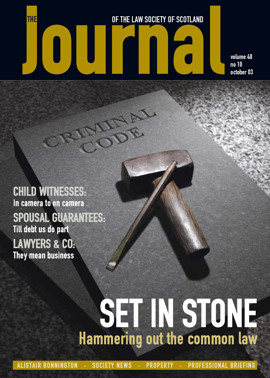Book reviews
David Cockburn in his preface promises “to provide practical assistance… in negotiating occupational leases of commercial property, particularly to those who do not work exclusively in this field”. He has kept that promise. The 12 chapters are very much geared towards the practicalities, although the frequent reminders of legal principles often serve as a gentle pointer to why a provision is so important.
Much of the book is set aside to the ”issues” of a commercial lease: rent review, repairs, service charges, insurance, tenants’ obligations (in particular use/keep open clauses), termination and transfer. The points of view of both the landlord and the tenant are given, without bias, from a commercial aspect. This helps concentrate on the essentials of the lease and gives useful guidance on the expectations of agents more used to dealing with these types of lease and why they may appear on some issues to be unreasonably immovable.
Through this approach the reader soon picks up what is, or should be important to their client and the fact that not every single clause in a standard type lease is discussed in detail emphasises that. I don’t think I have ever heard David say in terms that it is not big or clever to argue over drafting minutiae for the sake of it, but I have heard from him something equally forthright. This book manages to convey that view more subtly, although it is a pity that it does not reveal more of his personality.
The text is mostly in short paragraphs, with frequent bullet pointed lists. This makes the book easy to read and understand. Only occasionally I had to read a sentence a few times before I got the gist, but the chapter on insurance did find my interest and attention waning. The index refers to page numbers though I would have preferred numbered paragraphs. I would also have liked a bullet summary at the beginning or end of each chapter to make the book more of a “fingertip resource”, as the cover blurb claims. The lack of styles does not detract from the book’s usefulness, though it might put off the complete novice.
This book demands to be read, which in view of its size is no onerous task, rather than left until a problem has blown up. It will as promised be useful to practitioners who do not deal frequently with commercial leases.
Janet Taylor
The Legal Research Group found in 2001 that one in three clients would look for another law firm if theirs could not put a decent website together. Unfortunately, from a quick virtual tour many Scottish law firms’ sites suffer from poor design, failure to update or other basic flaws. With this very affordable book there’s no excuse for failing to exploit the internet’s potential.
Many of the ten chapters would justify purchasing this book by themselves. Two chapters cover the general areas of web strategies (by Charles Christian, a respected expert), and market research (by the editor). Website design by Gina Lovell is packed with good advice and practical examples. Nicola Webb on search engine strategy makes a technical area accessible to the non-specialist: short but essential reading if a site is not to drown in “online noise”. A further short chapter by Charles Christian covers client relationship management in the context of internet marketing, which he says is hot, but misunderstood. Gerald Newman and Stephen Mason deal with advertising, PR and e-commerce: high on advice and information and low on verbiage. Other chapters cover intranets, extranets, and risk. While much of the content is available elsewhere, the book brings together all the essentials and aims them squarely at the legal profession. If your firm has no website, read this before you start. If it has one, read this to improve it. And if you’ve decided you don’t need one, did you consult your clients?
Derek O’Carroll
In this issue
- Why politicians have got it wrong
- The big idea
- A comment on the Draft Criminal Code
- Stories from the other side of the desk
- Employment practice liability
- Jurisdiction in insolvency proceedings
- Heard but not seen
- Inter-spouse guarantees: an update
- High value – high exposure?
- Internet arbitration clauses: shock and awe?
- Conflict of interest in commercial security transa
- Indecency no longer “shameless”
- Scottish Solicitors’ Discipline Tribunal
- Reforms to corporate insolvency law will give indi
- Rights on forestry access and limited partnerships
- Website reviews
- Book reviews
- Substitute certificates of title
- Housing Improvement Task Force
- Contaminated land: what to ask






